?
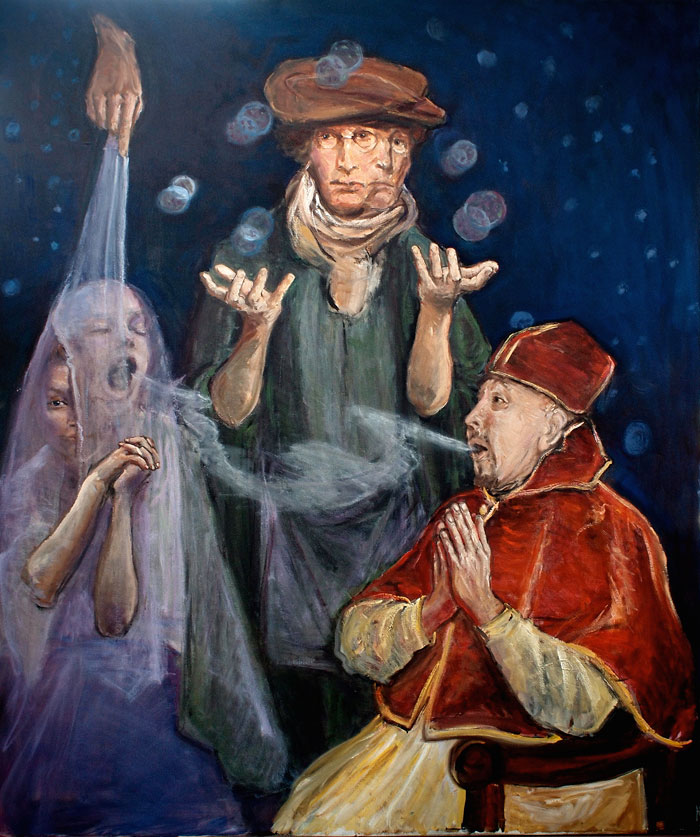
"The Metaphysician and Monsignor" ? Donald Langosy
?
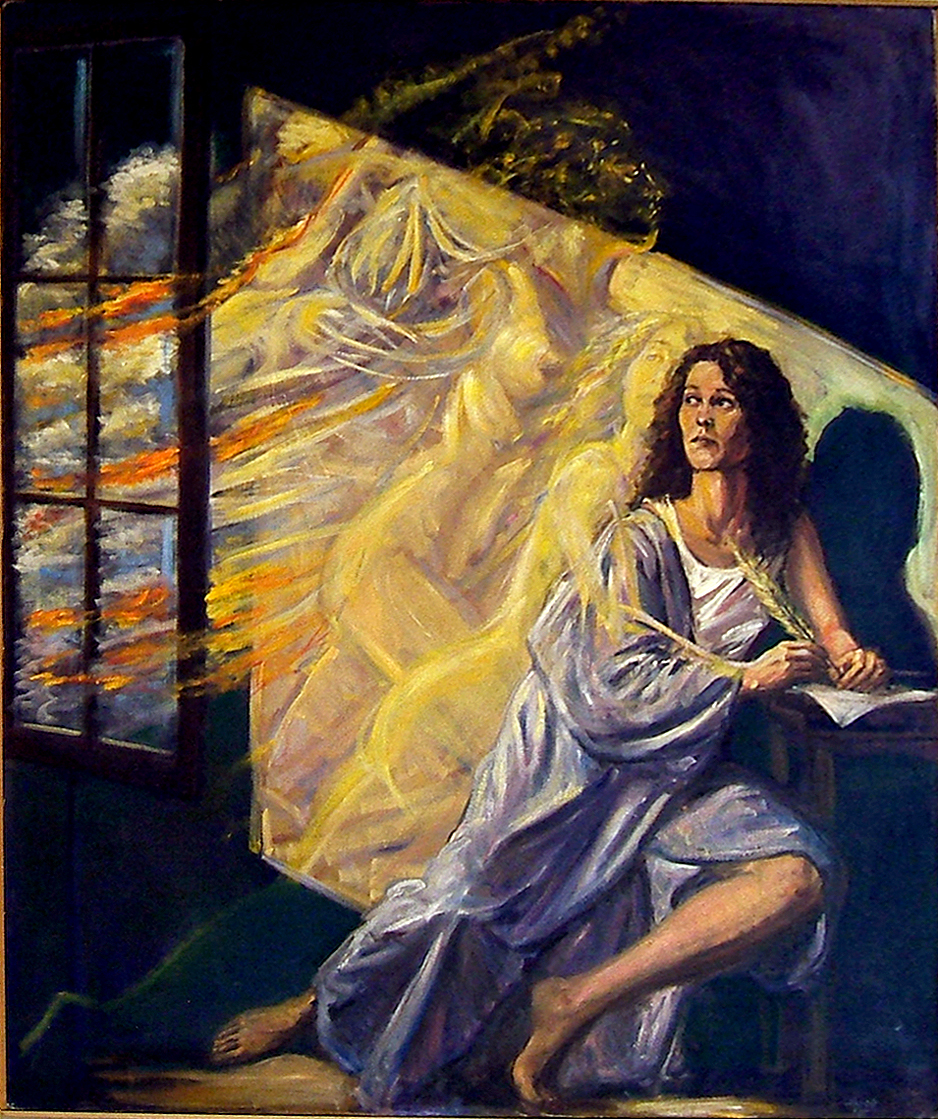
"Muse Becomes Poet" ? Donald Langosy
?
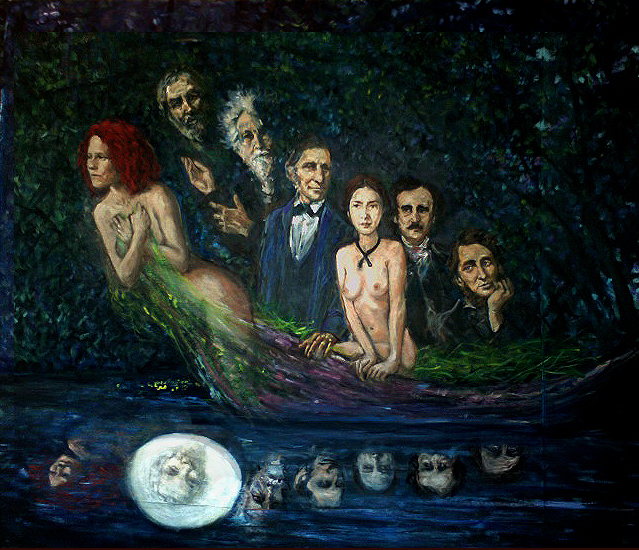
"Boat Of Poets" ? Donald Langosy
?
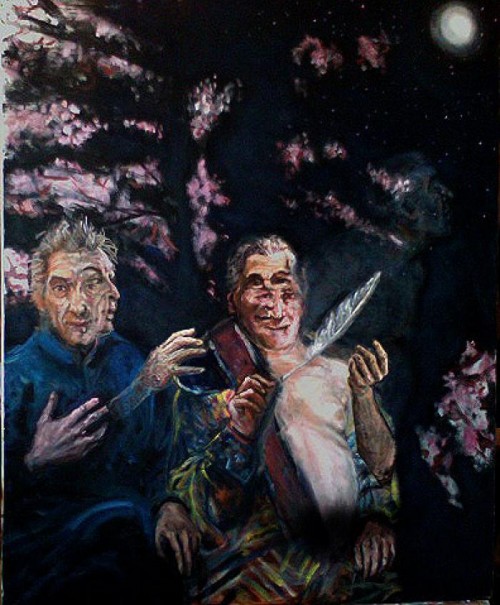
"Two poets meet in the Garden at night" ? Donald Langosy
?
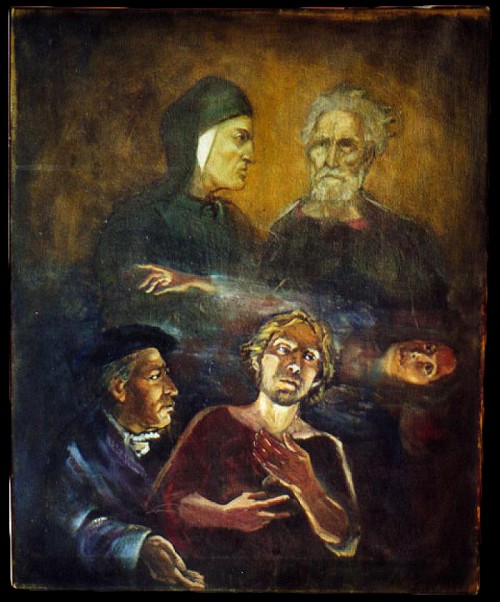
"dante and virgil" ? Donald Langosy
?
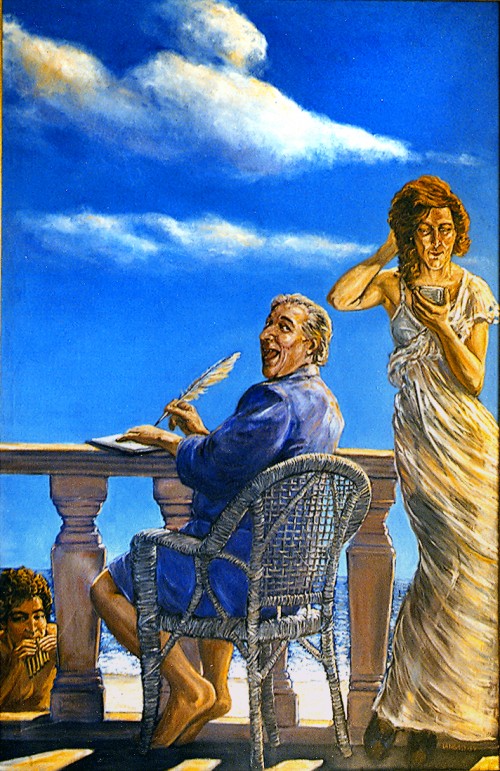
"poet and transvestite muse" ? Donald Langosy
?
?
?The Painter May Call Poetry Blind Painting? ? Da Vinci
Ever since I was a small child, I knew I would be a painter. But along the way, I cultured my inspiration in a creative petri dish, trying out different artistic practices. The one that still influences me most is poetry.
As a high school freshman, I read about Ezra Pound?s release from a Washington, D.C., mental hospital and his return to Europe. Intrigued, I began reading his poetry. Although I found the language indecipherable, I responded to the music in his words. I decided to become a poet then, and for the remainder of my teen years and into my early twenties, poetry and painting vied for my attention.
In 1970, at the age of 22, I arrived in Boston and met my first patron, who commissioned me to paint an enormous mural in his Victorian mansion in nearby Brookline. Creating the mural demanded that I dedicate myself to painting, yet I still felt torn between visual art and the poetry I enjoyed writing.
The Brookline mural took a year to paint. Then I went to Venice with my wife Elizabeth, determined to meet Ezra Pound. One late afternoon on the Zattere, as a light fog began to settle in, we started up a footbridge. Coming toward us from the opposite direction was the old poet. His gaze defiantly met mine. It felt as though his eyes were drilling two black holes through me.
His companion, Olga Rudge, stopped us at the top of the bridge and asked if I was the person leaving little watercolors outside their door. Yes, I was. We spoke quietly, while Pound flirted with Elizabeth. Olga invited us to their home, but when we arrived several days later, the poet was nowhere to be seen.
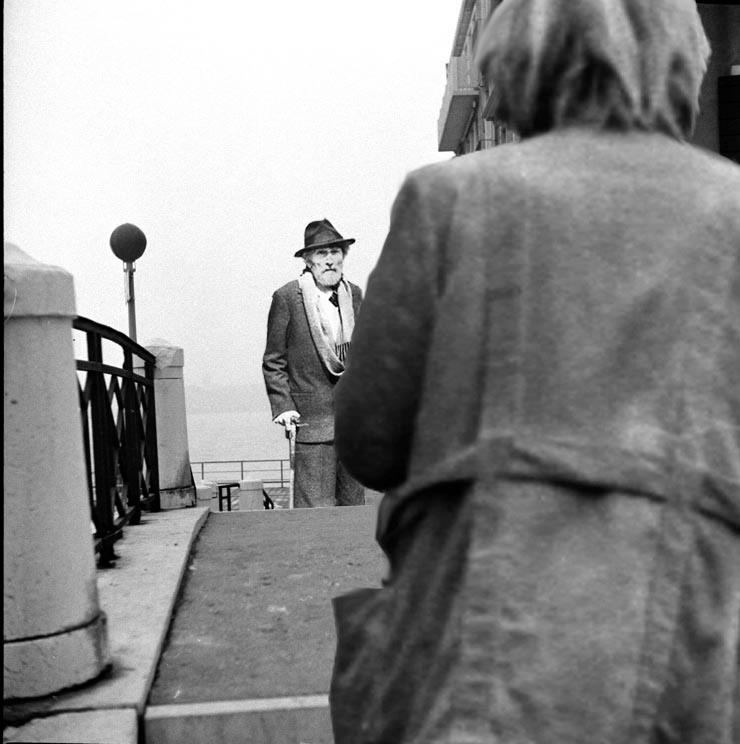
"Pound on the Bridge" ? Donald Langosy (Manipulated Image)
Although that meeting on the bridge with Pound was remarkable, several days later it dimmed when I walked into the Frari Church and saw Titian?s 1518 painting ?Assunta? (?Ascension of the Virgin?). It was a silent creation that presented its narration through a visual display of color and design. At once, I understood: I would never ascend to Pound?s linguistic heights; my fluency was in the visual language of painting. My art was wordless, and inspiration would only come alive at the easel.
So, it was settled: I was a painter. But the poet/painter connection didn?t end for me there. Poets have always been eager to herald the gifts of the painter, and painters have always looked to poets for inspiration. Deep friendships between poets and painters have existed for centuries. Giotto was a lifelong friend of Dante. Thomas Eakins was close to Walt Whitman. Balthus was mentored by Rilke. Manet had Baudelaire. Salvador Dali had Federico Garcia Lorca.
Titian often considered his paintings to be visual poems. And one of his closest friends was the poet Pietro Aretino, who devoted himself to spreading praise for the painter throughout Europe. Aretino also produced sonnets to ?express in the language of poetic style? the intent of the artist.
Pablo Picasso seemed to collect poets like a war hero collected medals. During his early years in Paris, for instance, Guillaume Apollinaire encouraged Picasso to leave behind his Blue period and enjoy the ?vie en rose.? The poet suggested that the painter pay attention to Parisian circus performers, including the saltimbanques on street corners who were the subject of many of Apollinaire?s poems at the time. Picasso responded with the lively paintings, drawings, and etchings of his Rose period.
Rainer Maria Rilke, in turn, was inspired by Picasso?s 1905 painting ?Family of Saltimbanques.? The fifth of Rilke?s 1922 Duino Elegies, which he wrote in the presence of the painting, opens this way:
But tell, me, who are they, these wanderers, even more
transient than we ourselves, who from their earliest days
are savagely wrung out
by a never-satisfied will (for whose sake)? Yet it wrings them,
bends them, twists them, swings them and flings them
and catches them again; and falling as if through oiled
slippery air, they land
on the threadbare carpet, worn constantly thinner
by their perpetual leaping, this carpet that is lost
in infinite space.
As an artist, I have never felt complete without poets in my life. While still in my twenties, following that fateful trip to Venice, I was fortunate that poets began visiting my studio. Their presence was very important to my creative well-being. I would often paint them interacting with their muses, as I did in ?Muse Becomes Poet.?
My closest poet friend was Antonio Giarraputo. He earned his living as a language teacher in the Boston school system. The day he retired, he came to my studio. As he sat down, he said, ?Now I am just a poet.? I set a fresh canvas on my easel, and I painted his portrait.
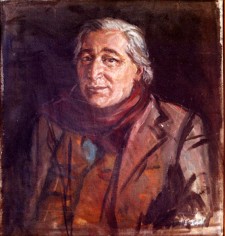
"antonio" ? Donald Langosy
I met Antonio in the late ?70s, and he remains the most vital poetic presence in my work. He had seen my paintings, he told me after we met, and longed to know who I was, although he didn?t know my name. And I, having heard of him from friends, had visualized him perfectly, even the sound of his voice. When we did finally meet, we already felt like close friends.
We both liked working through the night. Antonio would call me at 3 or 4 in the morning and read his current poem. I?d describe the picture I was working on. We admired each other?s work, although we didn?t understand each other?s craft. In that regard, we could have been aliens speaking on the phone from different planets.
In one of his notebooks, circa 1510, Leonardo da Vinci wrote, ?And if you call painting dumb poetry, the painter may call poetry blind painting.? Da Vinci was arguing for painting and the eye as the truest ?window of the soul?:
If you, historians, or poets, or mathematicians had not seen things with your eyes you could not report of them in writing. And if you, 0 poet, tell a story with your pen, the painter with his brush can tell it more easily?.?
Yet, in my experience, poets react the most intensely to paintings and seem to have more understanding than anyone else of a painter?s vision. The poet and painter comprehend the same moment from different viewpoints. As a young painter, I seemed to spend as much time explaining my pictures as I did painting them. Now, in my sixties, I no longer care to explain my intent. I?d rather turn the task of depicting emotions through words over to a poet, to explain with his or her own optical magic.
?
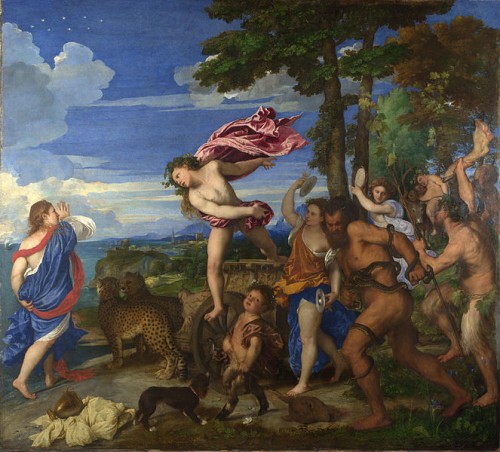
Titian?s Bacchus and Ariadne
?
In 2001, Elizabeth and I visited our daughters in London. We went to the National Gallery to see my favorite painting, Titian?s Bacchus and Ariadne. I?d only seen it before in reproductions and was immediately mesmerized. Elizabeth left me there so that she could view the other galleries. I?m not sure how long I looked at Bacchus and Ariadne, but eventually I became aware of somebody else next to me who seemed just as fixated.
We introduced ourselves. We?d both traveled a great distance to see Titian?s masterpiece. We?d both arrived in front of it at the same time. I was a painter from Boston; he was a poet from Brooklyn.
Antonio had been dead for a decade, but at that moment, he recited one of his poems in my mind:
????????????????????????????????????Album Leaf
?????????????????????????????????????????????????after Ma Yuan
?????????????before the temple gate
?????????????of Yin, the Moon-son,
??????????????two burdened strangers met
??????and bowed in cognizance?
??????and silently departed
?????????????together,
??????????????????????????burdenless?
?
Publishing Information:
?
?
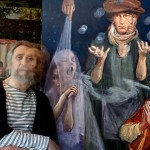
Donald Langosy
Donald Langosy was born in Manhattan. He is the husband and partner in creative crime of TW Executive Editor Elizabeth Langosy.
He?s also a painter, poet, and creator of the Bertie Puddlepoop Puppet Troupe.
Of the impact he?s had on his two daughters, Hadley Langosy, TW?s production editor, says he ?helped us with a steady diet of Fellini films, pilgrimages to see Picasso?s Guernica, Edgar Bergen, Shakespeare?s Hamlet recited over dinner, and constant support while we learned how to create our own art.?
You can learn more about his work at The Art of Donald Langosy.
?
You're reading Talking Writing, an online magazine for writers.
Like what you see? Share it?and subscribe to TW!
glamping forgetting sarah marshall taraji p. henson irs shuttle discovery biggest loser bonnie raitt
কোন মন্তব্য নেই:
একটি মন্তব্য পোস্ট করুন